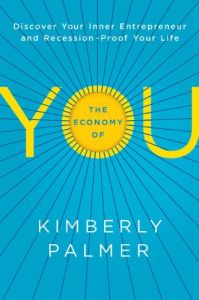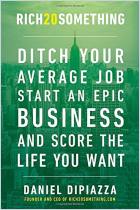Join getAbstract to access the summary!

Join getAbstract to access the summary!
Kimberly Palmer
The Economy of You
Discover Your Inner Entrepreneur and Recession-Proof Your Life
AMACOM, 2014
What's inside?
With the constant threat of downsizing and job security a thing of the past, many people turn to “side-gigs” for financial security.
Recommendation
In previous decades, many employees held lifetime jobs that provided benefits and pensions. In the modern era, many people – including, most conspicuously, many millennials – can’t find work. Those who have jobs worry that they might lose them due to cutbacks. US News & World Report money editor Kimberly Palmer, a financial planner, shows employees of all ages how to organize “side-gigs” or second jobs with an entrepreneurial bent. Creating an extracurricular business you can turn into a living puts you in charge of your prospects and takes your career out of the hands of a company that could be vulnerable to downsizing. getAbstract suggests this timely, useful guide to workers who want to protect themselves or make a little extra cash.
Summary
About the Author
Kimberly Palmer, senior money editor at US News & World Report wrote Generation Earn: The Young Professional’s Guide to Spending, Investing and Giving Back.




















Comment on this summary